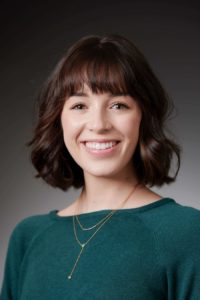Experience in Rare Disease Advocacy: The Yaya Foundation
Sabrina Southwick, MS, CGC,
GENETIC COUNSELOR INSIGHTS, RESEARCH & EDUCATION | 10.24.2022
 Try as we might, we will never be able to devote the time and attention each rare disease deserves. In grad school, time constraints force us to focus on common conditions, pathognomonic symptoms, and generalized psychosocial considerations. The majority of the ~7,000 rare diseases will never be featured on PowerPoint slides and board exam questions. Though incredibly salient to the people they affect, these rare diseases remain inconspicuous to us until and unless they make themselves known in clinic or our lives. I hadn’t even heard of 4H Leukodystrophy (POLR3-Related Leukodystrophy) before I was approached by the Yaya Foundation during my second semester of training.
Try as we might, we will never be able to devote the time and attention each rare disease deserves. In grad school, time constraints force us to focus on common conditions, pathognomonic symptoms, and generalized psychosocial considerations. The majority of the ~7,000 rare diseases will never be featured on PowerPoint slides and board exam questions. Though incredibly salient to the people they affect, these rare diseases remain inconspicuous to us until and unless they make themselves known in clinic or our lives. I hadn’t even heard of 4H Leukodystrophy (POLR3-Related Leukodystrophy) before I was approached by the Yaya Foundation during my second semester of training.
The Yaya Foundation, named in memory of the founders’ darling daughter, is the one and only patient advocacy organization for 4H Leukodystrophy. I’ll save you the Google: 4H Leukodystrophy is an autosomal recessive hypomyelinating disorder often characterized by neurologic dysfunction, abnormal dentition, endocrine abnormalities, and myopia. Management is currently supportive, but research is advancing to find targeted therapies. There are approximately 300 known affected individuals, each with their own story.
Since much of what constitutes the rare disease community was unknown to me, I was excited to become a small part of it and gain new perspective. As a summer intern for the Yaya Foundation, I learned the intricacies of the condition; more importantly, I had the opportunity to delve into the community and the workings of a small, rare disease organization. Counting my fabulous co-intern, Anusha Klinder (UCI program), we made a mighty team of five.
My clinical training and internship experience complemented each other extremely well. As I was using patient-friendly language in my sessions, I was creating a glossary for 4H families that included context and relevance to 4H Leukodystrophy. As I was locating resources for my newly diagnosed patients, I was curating summaries of the most useful scientific presentations and papers for 4H Leukodystrophy families to explore. Just as I was disclosing diagnoses in pediatric clinic, I was also designing an onboarding and connection process for newly diagnosed families reaching out to the Yaya Foundation.
I knew my skill set would fit well with this work, but I didn’t anticipate the extent of the harmony. Knowing how genetic counselors might locate patient resources, I was able to identify and close gaps in reaching 4H Leukodystrophy families. And even though I may never see a 4H Leukodystrophy patient in clinic, my new appreciation for the rare disease world is transferrable to my care and understanding of families with any rare diagnosis. There’s so much value in the tight-knit, disease-specific communities, and there’s power in the collective #RareAsOne community.
Now graduated and working, I continue to reflect on the exciting way my experiences dovetailed that summer. There is still so much untapped potential for genetic counselors and I’m eager to continue exploring new ways to support my patients and their communities. I’m proud of what I contributed to the 4H Leukodystrophy community in such a short time. I only wish every rare disease organization could have someone with our training on staff.
SABRINA SOUTHWICK, MS, CGC, graduated from the University of Minnesota in 2022. Since then, she has started her career as a prenatal genetic counselor at Johns Hopkins in Baltimore, MD.
